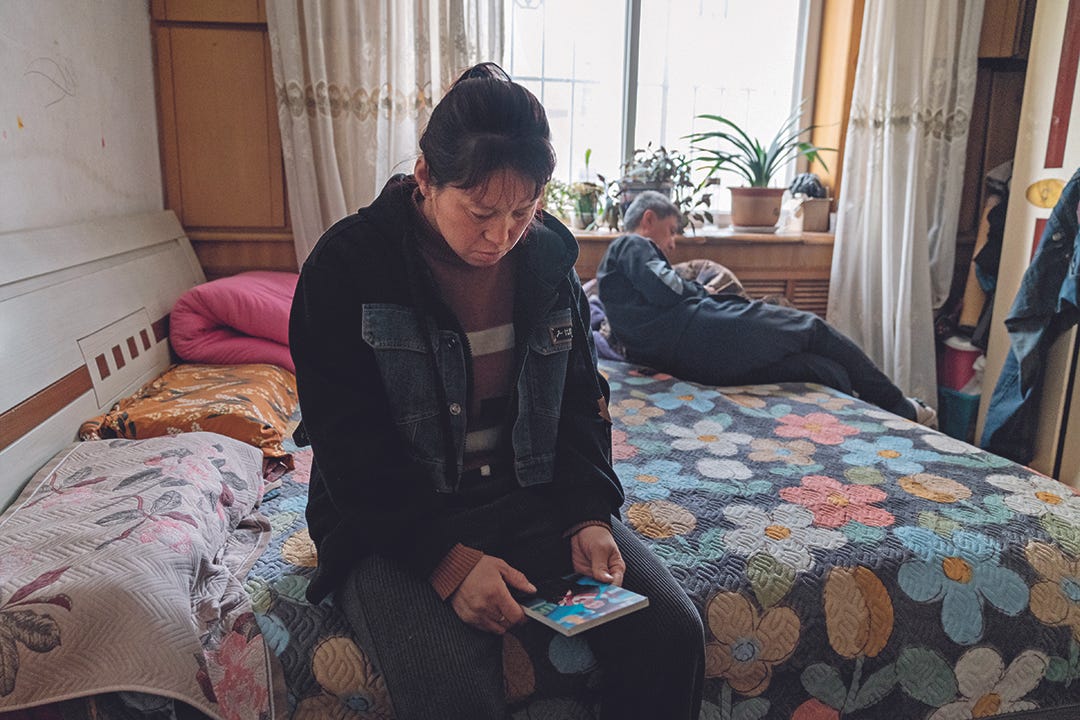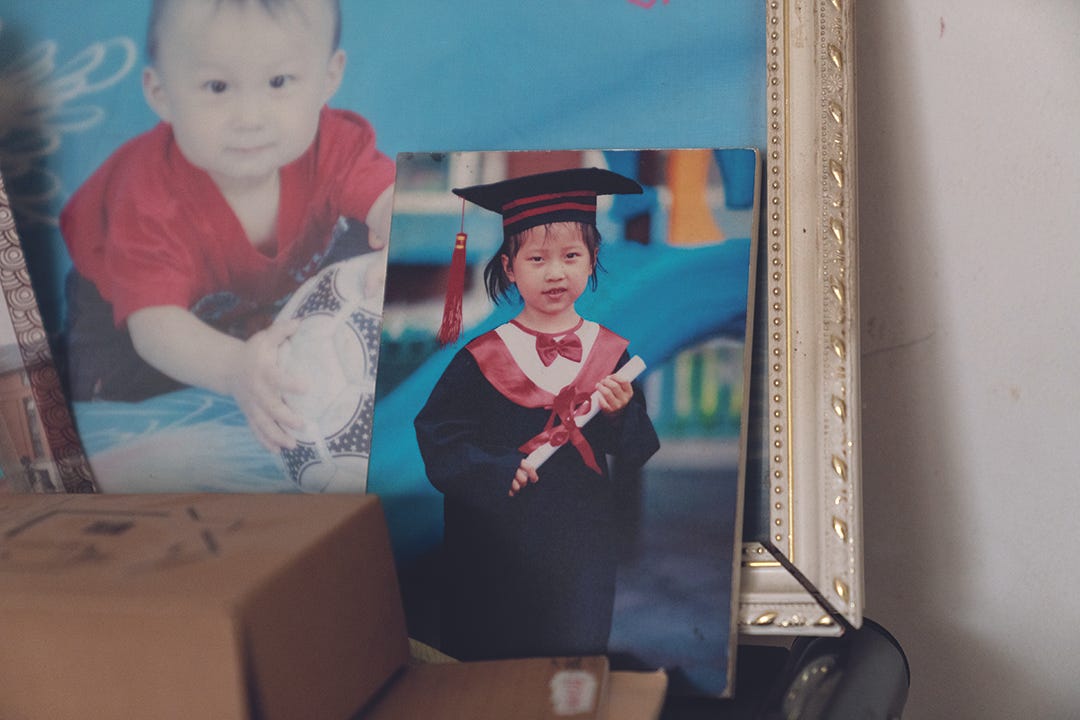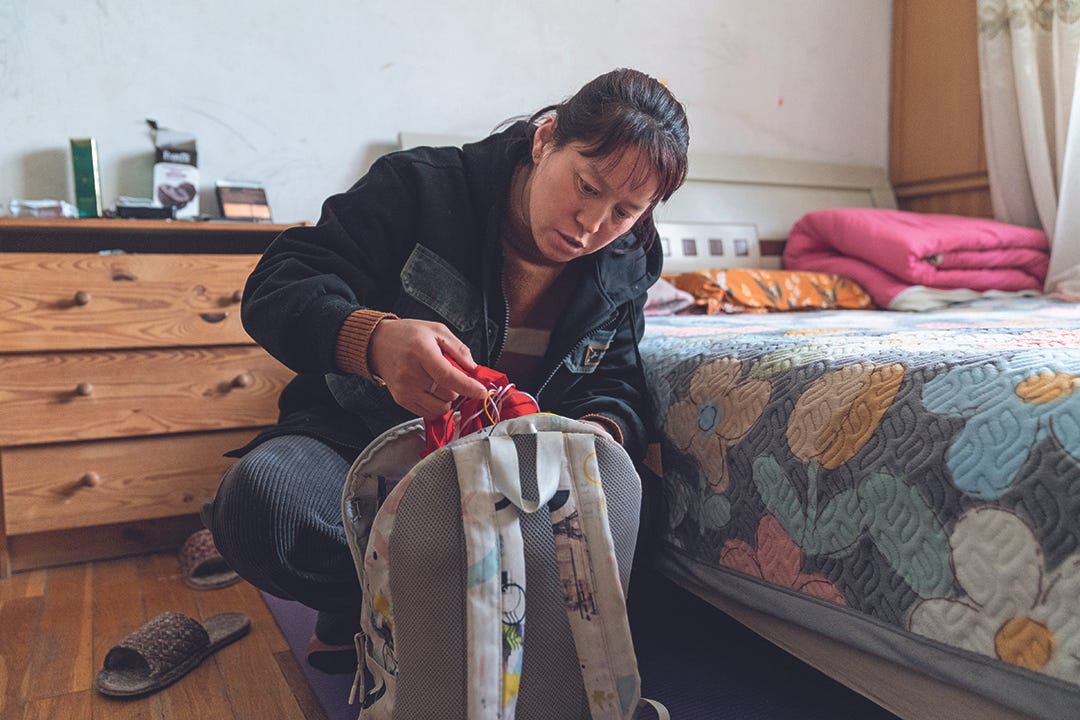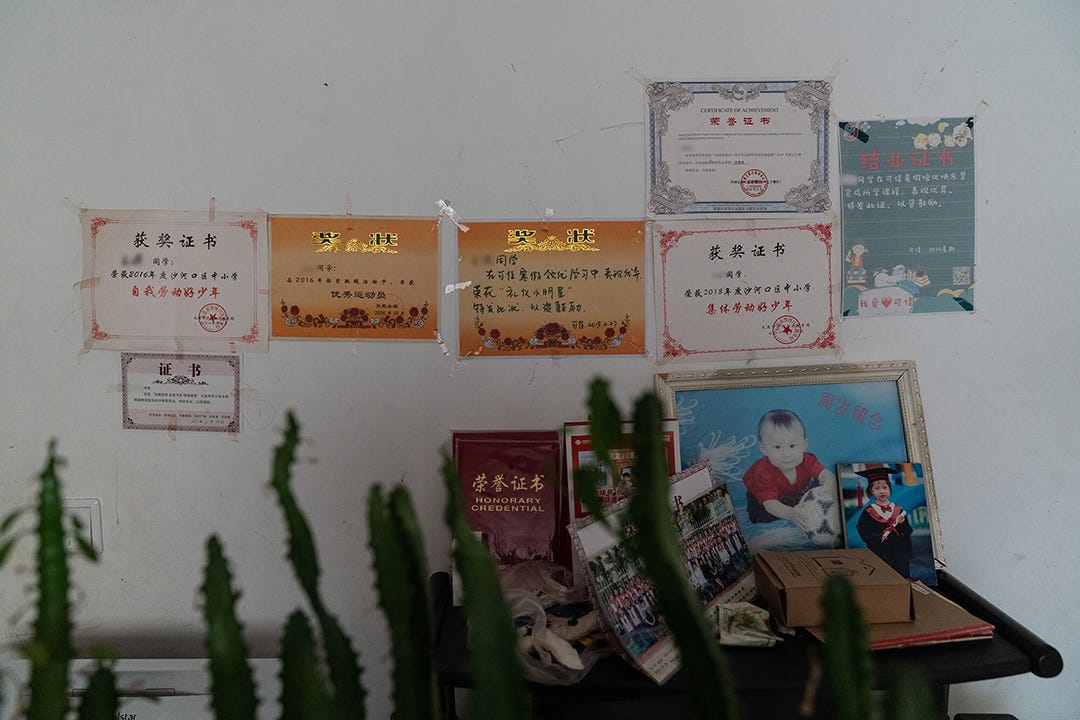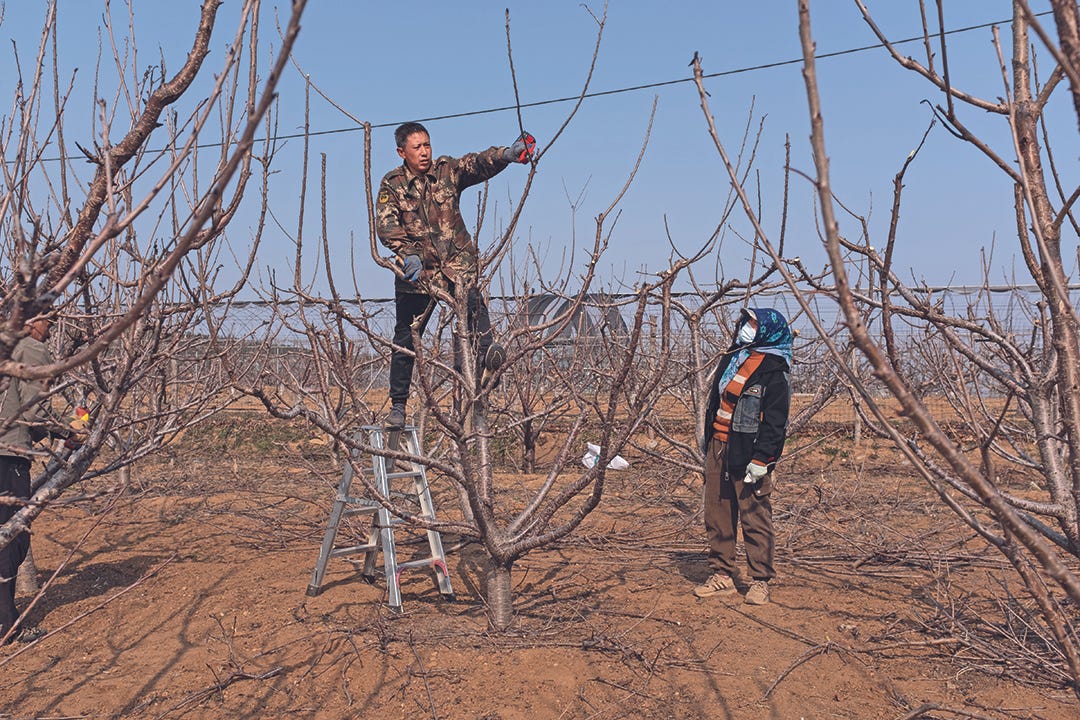Free Photo Essay: Rise in Teen Violence in China Rekindles Pain for Parents of Slain Daughter
A murder in northern China’s Hebei province of a teenage boy by three of his classmates, shocked the nation and yet again shone a spotlight on the rise in violent juvenile crime
Qiqi’s mother sits on bed and gazes at Qiqi’s photo, as her husband sits on the other side of the bed on March 28 in Dalian, Liaoning province. Photo: Zheng Haipeng/Caixin
A murder in northern China’s Hebei province, where a teenage boy was killed by three of his classmates and buried in a greenhouse, shocked the nation. The case, which occurred in March, once again shone a spotlight on the rise in violent juvenile crime and rekindled the trauma of a mother in Northeast China’s Dalian, Liaoning province, whose daughter was killed by a 13-year-old boy almost five years ago.
A family broken
On the afternoon of Oct. 20, 2019, 10-year-old Qiqi was lured by her neighbor, a boy surnamed Cai, into his home under a false pretext. Cai then sexually assaulted the girl before stabbing her to death.
He Meiling, Qiqi’s mother, said as parents she and her husband can never forget the pain her murder has caused. After Qiqi’s death, He said she couldn’t stop thinking about how things might have turned out differently: if only she hadn’t muted her phone that day, she would have heard the alarm and picked Qiqi up from her drawing class on time and ensured she got home safely; if only she hadn’t sent Qiqi to the drawing class in the first place the tragedy would have been avoided entirely; if only family members had found the dying Qiqi in time after she was dumped in the neighborhood by Cai, she could have received medical attention and been saved; and most importantly, if only Cai had a conscience, he wouldn’t have mercilessly killed Qiqi. If only. These thoughts crowd her mind amplifying her feelings of self-blame.
A photo of Qiqi wearing a graduation gown shot during her kindergarten years is placed in the corner of the bedroom. Photo: Zheng Haipeng
In the first two years after the murder, He struggled to get out of bed, overwhelmed with painful memories and depression. She also suffered physical symptoms from her grief, experiencing body aches and chronic insomnia, while her non-stop tears caused her eyesight to decline. Qiqi’s father, Wang Jiuzhang, whose hair has turned grey despite only being in his early forties, has kept largely silent about his daughter’s death. Qiqi’s elder brother, who’s a college student, has also chosen to bury his grief deep.
Qiqi’s mother still keeps her textbooks, stationary and cutlery in her schoolbag nearly five years after her death. Photo: Zheng Haipeng
Certificates of merit earned by Qiqi and her brother are taped to the wall of the bedroom. Photo: Zheng Haipeng
Qiqi’s parents carefully keep her belongings just as they were when she was alive even though it has been nearly five years since her death, including photos, toys, school bags, books and a cutlery box. The only remaining painting by Qiqi is stuck high on a top shelf by her family so that it doesn’t evoke constant sorrow. It has collected a layer of dust.
Under age perpetrator
The 13-year-old Cai was named as the main suspect by municipal police at around 11 p.m. on the day of the murder and confessed to killing the girl after being detained. In the civil judgment issued by the court in 2020, Cai was described as a precocious boy who had repeatedly stalked and harassed young women.
The only painting by Qiqi is kept on the top of the shelf. In order not to reignite her grief, He places it face down. Photo: Zheng Haipeng
According to the second provision of Article 17 of China’s Criminal Law, Cai cannot be charged or held criminally responsible because at that time he had yet to turn 14, the age of criminal liability. He was sent to a rehabilitation center for young delinquents for three years, which was the most severe punishment available under legislation at that time.
The courts sought to auction the house where Cai lived and Qiqi was murdered and provide the funds as compensation to her parents. However, it has failed to sell at auction twice. The house is owned by Qiqi’s parents now, but they’ve decided to leave it empty temporarily. Photo: Zheng Haipeng
On Aug. 10, 2020, the courts ordered Cai’s parents to compensate Qiqi’s parents for funeral expenses, her death and mental damage totaling over 1.28 million yuan ($176,713) and make a public apology in the provincial print media within 10 days from the judgment. However, as they refused to even attend the proceedings and failed to fulfil court’s judgments, they were detained for 15 days and their house auctioned. However, the house failed to sell in two abortive auctions. The house is owned by Qiqi’s parents now, but as it was their daughter’s place of suffering, they’ve decided to leave it empty for now.
Harsher sentences
An amendment to China’s Criminal Law was approved by the 24th session of the committee of the 13th National People's Congress on Dec. 26, 2020, lowered the age of criminal liability to 12. It stipulates that juveniles aged between 12 and 14, who commit premeditated murder or cause intentional harm resulting in death or serious disability through particularly cruel means, shall bear criminal responsibility. This is only if the case is approved for prosecution by the Supreme People's Procuratorate. This took effect on March 1, 2021, followed by another revision to the Prevention of Juvenile Delinquency that abolished the reformatory education system and replaced it with specialized corrective education, which took effect on June 1, 2021.
He had intended to pursue criminal charges against Cai after the revision of the law was implemented. However, she was advised by lawyers that Article 12 of the Criminal Law explicitly addresses the retroactivity of laws, stating that subsequent provision of laws cannot be applied to punish prior actions if they were not recognized as criminal by laws at that time.
The teen murder case in Handan, Hebei province, recently has reopened old wounds for Qiqi’s family. He noted the striking similarities between the two cases and learned about the victim's family through the internet, frequently expressing her sympathy and support on social media.
The Hebei Provincial People's Procuratorate issued a case report on April 8, stating that the three perpetrators were between the ages of 12 and 14 at the time of the crime. They were found to have intentionally caused the death of the victim under particularly heinous circumstances, warranting criminal responsibility under current laws. The Hebei prosecutors submitted the case to the Supreme People's Procuratorate for approval to pursue charges against the juvenile criminals.
There has been a rise in teen crimes across China in recent years, said Vice Procurator General Gong Ming at a press conference.
“Juvenile crime is not merely a judicial issue but a complex social problem,” said Gong.
Prosecutor’s offices nationwide handled 97,000 juvenile cases in 2023, with the number of crimes committed by minors under 16 years old totaling 10,000. Crimes including theft, rape, robbery, mass brawls and provocation made up nearly 70% of these cases. There were 27,000 arrests and 39,000 prosecutions, while a more lenient approach is taken for children who commit minor or first-time offenses, with 38,000 were not formally arrested and 40,000 spared prosecution.
A place to heal
He and her husband took out a loan to lease a 1.15-acre orchard in a mountainous area 40 kilometers from downtown Dalian in 2022, planting more than 400 fruit trees.
Qiqi’s parents drive from the orchard to downtown Dalian. Photo: Zheng Haipeng
Though the couple have to live in a basic 10-square-meter mobile home, this quiet place away from the noise of the city and gossip of the neighborhood has given them inner peace. Since they moved, He found her sleep quality has improved as the tiring work takes her mind off the endless sorrow.
Wang Jiuzhang prunes branches of a cherry tree in the orchard, with wife He Meiling helping by his side. Photo: Zheng Haipeng
Due to poor health, He can only do light work, with the heavy tasks handled by her husband Wang Jiuzhang. Wang works in the fields all day long, but the memories of their slain daughter aren’t far from his mind. And when He brings up their daughter he will stare into his phone, his head hung low, never saying a word.
Qiqi’s parents spend most of the year in the orchard, returning to their residence in downtown Dalian only when their son returns home for the holidays or when it’s time to pay tribute to her daughter.




